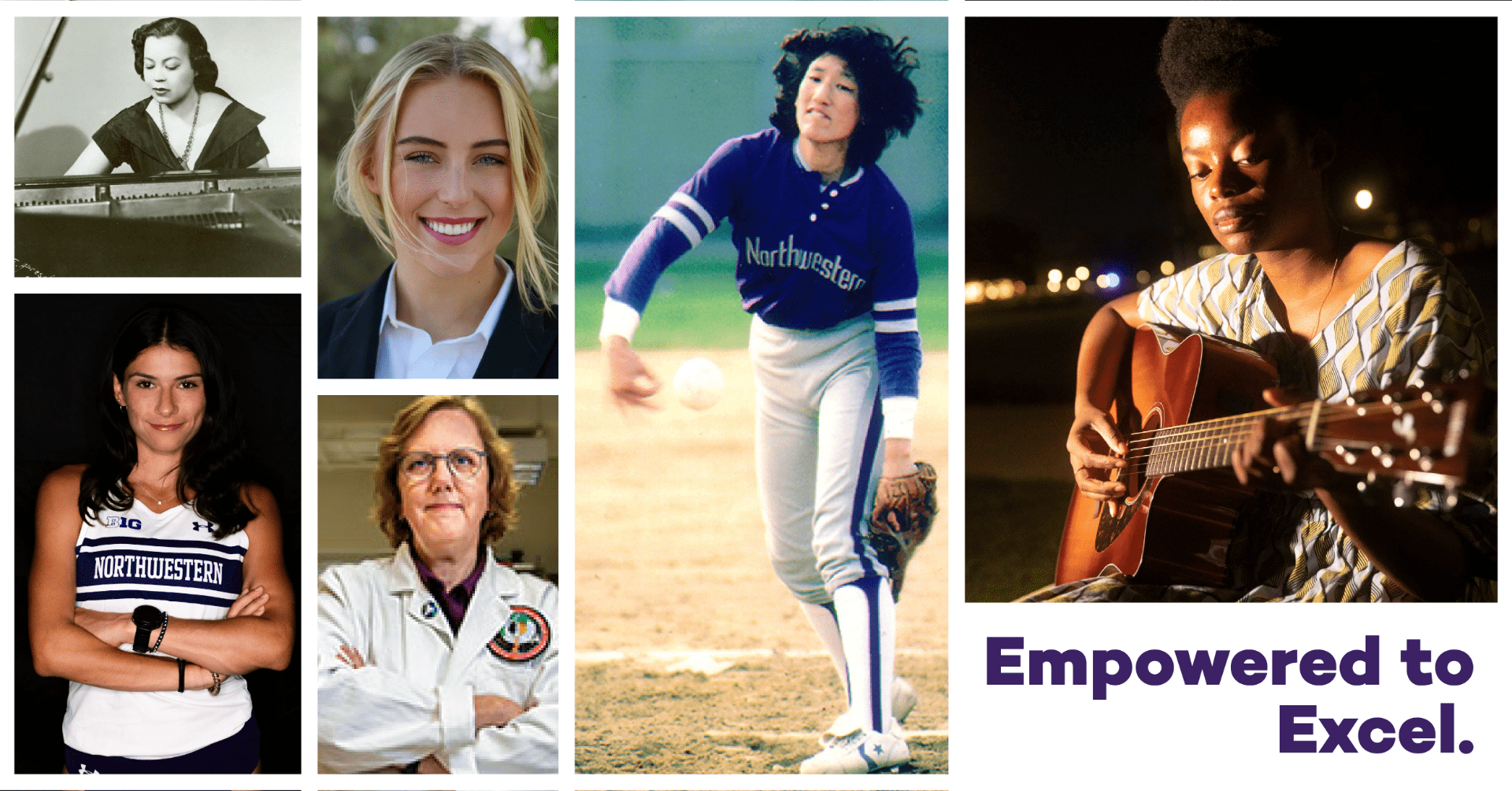From the very first female students to enroll in 1869, to our current generation of changemakers, womxn* at Northwestern have long found the empowering environment they’ve needed to forge their own paths and overcome obstacles.
This Women’s History Month, we’re taking a moment to lift up three inspiring alumnae alongside three current students following in their legacy.
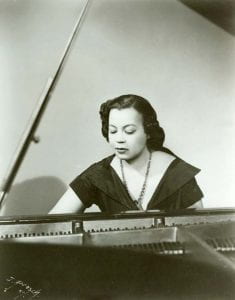 Alumna: Margaret Allison Bonds ‘33/’34
Alumna: Margaret Allison Bonds ‘33/’34
Challenging prejudice
Margaret Allison Bonds was a Bienen School of Music alumni, where she enrolled as one of the few Black students in the school. Breaking prejudice and societal biases at the time, Margaret earned her Bachelor of Music (1933) and Master of Music (1934) degrees in piano and composition. Then she went on to become the first Black soloist to perform with the Chicago Symphony Orchestra, as well as one of the first nationally known Black composers and performers. A lifelong teacher, creator, and performer, she continued to advocate for Black artists, and dedicated her work to numerous civil rights movements.
Student: Olivia Pierce ’24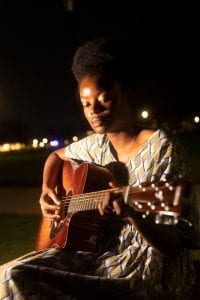
Empowered to bring her full voice
Olivia Pierce is a musician and Musicology major in the Bienen School of Music. She feels empowered working alongside other Black artists and producers on campus, who encourage her to bring her full voice and personal sound instead of what people may expect from her.
For Olivia, Margaret Bonds’s legacy has had a direct impact on her experience. “[Margaret Bonds] famously did not have the best time because at this point Northwestern was still segregated. I went through all of her correspondence in the Library of Special Collections to see how she navigated these spaces, because it can be challenging to be Black and female at Northwestern for a number of reasons. It was really encouraging to me that she continued to write to her piano teacher for the rest of her life. Even though larger spaces can sometimes be challenging, there are always small pockets of support. For me, that would be my voice teacher, Patrice Michaels.
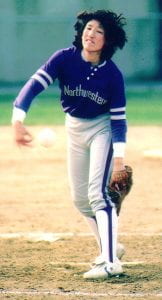 Alumna: Lisa Ishikawa Sliwa ‘88
Alumna: Lisa Ishikawa Sliwa ‘88
Outstanding in every field
Putting the student in student athlete, Lisa Ishikawa Sliva is both an electrical engineering graduate from the McCormick School of Engineering and Northwestern’s Female Athlete of the decade for the 1980’s. While engaging in rigorous academics, “Ish” became the most dominant softball pitcher in Northwestern history, setting two NCAA and 20 Northwestern records. Leading Northwestern to three College World Series, she also competed for the United States at the Women’s World Softball Championships in New Zealand in 1986. Now a business analyst in the information technology department for Motorola Mobility, she has been outstanding in every field she’s stepped into.
Student: Rachel McCardell ’22/‘23
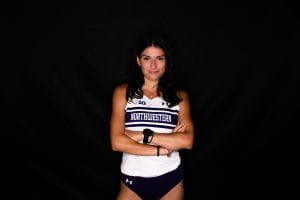
Empowered to defy definition
It can be hard to define Rachel McCardell, a senior from the McCormick School of Engineering who has helped redefine Northwestern Cross Country. Not as well known as other programs, the team went from being 13th in the Big 10, to 30th in the country. And along the way, Rachel finished her final season as an NCAA Qualifier and had the highest finish for a Northwestern athlete ever at the Midwest Regional.
But that’s just one dimension of Rachel. As she puts it, Northwestern gave her the “best-of-both-worlds”: “I wanted to be at a school that would set me up to excel both athletically and academically.” Rachel has pursued a computer science major and a certificate in managerial analytics from the Kellogg School of Management, all while serving as a campus tour guide and singing in the Extreme Measures a cappella group. Her cross country team’s motto may be “hard work beats talent”, but we know Rachel clearly has both.
 Alumna: Martha Hotz Vitaterna
Alumna: Martha Hotz Vitaterna
Challenging Skepticism
Martha Hotz Vitaterna is a 1992 PhD alumna whose research specializes in Neurogenetics, Brain and Behavior. One of her most notable studies was on uncovering the relationships between circadian rhythms and mammal’s health and physiology, in which she discovered the genetic basis for circadian rhythms in mice and other mammals. She persisted through skepticism and discouragement along her research career, and garnered success in discovering the first molecular piece of the mammalian clock, which was published in 1994. She remains actively involved at Northwestern University as a research professor in the Biology Department, continuing her work in gaining a deeper understanding of mammalian physiology.
Student: Haley Hooper ’23
Empowered to Explore

Haley Hooper is a senior undergraduate student at the School of Education and Social Policy, pursuing learning and organizational change, entrepreneurship, and design. Throughout her career at Northwestern, Haley continued to break barriers, expanding her scope of horizon both in and out of the classroom. After her freshman year, she shifted her focus from being a student athlete on the Northwestern Cross Country team, to focusing on her entrepreneurship projects at The Garage, as well as her certification in service design and her music career as a DJ.
As Haley puts it, “I think exploring all these different disciplines comes from the fact that they all reflect my genuine passion for exploring new ideas and making them into reality. And everything I learn in doing so will eventually come back to form who I am, so it’s a reinforcing cycle.” Fortunately, she’s in an environment that supports her exploration.
Northwestern is proud to be part of the journey for these trailblazing individuals, and it will continue to empower womxn as they challenge and excel in every industry.
Learn More
Inspired by these past, current and future history makers? Follow our Instagram, TikTok, and other social media for more information on how Northwestern continues to support womxn leaders on campus, and request for more information if you have any questions.
*The use of womxn is intended to share Northwestern’s value of inclusivity throughout this year-long celebration. It’s intended to explicitly include women of color, transgender women, femme/feminine-identifying genderqueer and non-binary individuals. We recognize this is evolving, which is why we are also using the phrase gender-diverse individuals. This is meant to be inclusive and honor the broad spectrum of gender identity, role, or expression which may differ from traditional cultural norms.
